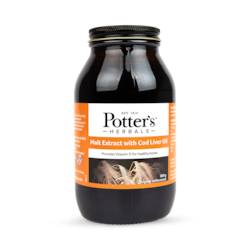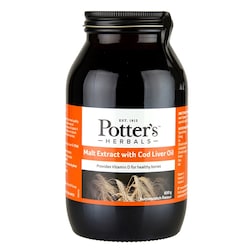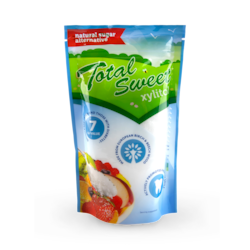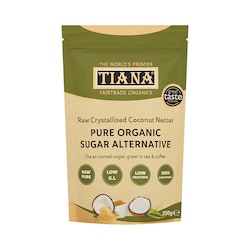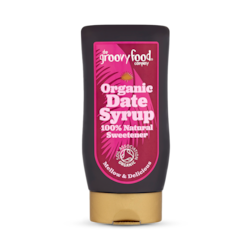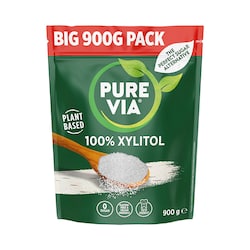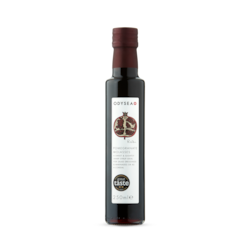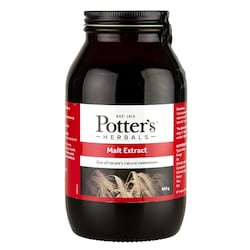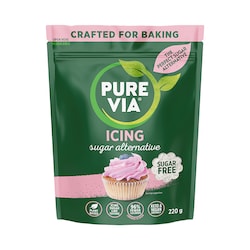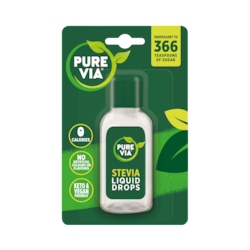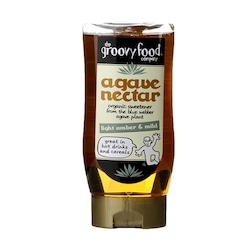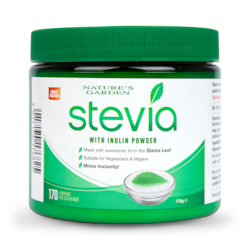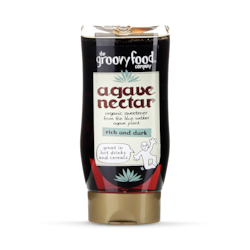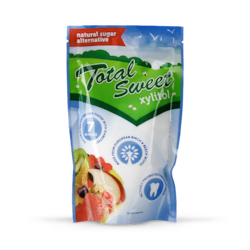15% off £20
What is dextrose?

Dextrose seems to pop up in everything.
From processed foods to flavoured water, dextrose is a familiar name on ingredients lists.
It’s also used by athletes to improve their performance.
But what is dextrose? Is it a naturally-occurring substance or something man-made? Is dextrose sugar? And is dextrose bad for you?
Read on to find out all about dextrose.
What is dextrose?
Dextrose is what’s known as a simple sugar. Chemically speaking it only has one molecule (what’s known as a monosaccharide) – meaning it’s incredibly easy for the body to break down.1
Dextrose is a starch-based sugar and is made from refined corn, rice, or wheat.
Dextrose is added to many foods, especially processed foods, to improve their taste.
Dextrose is also used by athletes for instant energy, and in healthcare settings to raise blood sugar and provide emergency hydration and energy.
What does dextrose do in the body?
Dextrose behaves the same way as pure glucose in the body.
All foods are converted to glucose by the body, some at a more rapid rate than others. Dextrose is converted rapidly into glucose (blood sugar) and has a high glycaemic index (GI) – the scale which measures how quickly a food or drink raises the levels of sugar in the blood.2
This is because dextrose only has one molecule, so there’s no chain for the body to break down. Longer chain molecules, such as proteins, take longer to be broken down by the body and as a result, don’t cause the blood sugar to spike in the way that single molecules like dextrose do.
Like all simple sugars, dextrose has a sweet taste which our brains consider ‘rewarding’. This makes us seek out its pleasant taste and eat more than we otherwise might – a phenomenon which has been compared to addiction.3
What is dextrose used for?
-
To improve the flavour of food and drink
You’ll see dextrose on the ingredients list of many different processed foods. Being intensely sweet in flavour, dextrose gives a pleasant taste and palatability to plain foods and cheaper ingredients. This helps explain the rise of dextrose in commercial food production.
It is also added to many savoury foods to help disguise high salt content, as the sweetness of the dextrose balances out a salty flavour.
-
As a preservative
Cultured dextrose is a type of preservative which inhibits the growth of mould and yeast in food products, extending their shelf life.
Cultured dextrose was formerly known as preservative 280 (propionic acid) and is a by-product of sugar or milk fermentation alongside probiotic bacteria.4
-
In healthcare settings
As it’s so readily absorbed by the body, dextrose is able to provide rapid energy to patients without them needing to eat or drink. This is useful in intensive care settings, where it’s often used intravenously (IV) as part of partial or total parenteral nutrition.5
Dextrose is also used in gels, tablets or injections to raise blood sugar in cases – such as with people with diabetes – where it has dropped dangerously low. Many people with diabetes or hypoglycaemia (very low blood sugar) carry dextrose tablets to take by mouth to combat low blood sugar.
-
To help refuel after exercise
Dextrose is used in sports drinks, dextrose tablets and hydration and energy gels. Dextrose is energy-dense, and thanks to its ability to enter the bloodstream quickly, it can help replenish glycogen stores. This is especially important for endurance and long-distance athletes such as cyclists, marathon runners or triathletes. 6
Summary
- Dextrose is a simple sugar which is chemically the same as glucose
- It causes a rise in blood sugar, which can either be helpful or harmful to health depending on the application and circumstances
- Dextrose is widely used as an additive to improve the taste and palatability of a wide range of foods and beverages
- It’s also used by athletes to restore glycogen stores quickly after exercise
- Dextrose is also used in emergency health care to raise blood sugar and provide energy
Is dextrose bad for your health?
When used by an athlete after strenuous exercise, or by a medical professional in a clinical setting, dextrose can be highly beneficial – even life-saving. It helps stabilise very low blood sugar and can provide vital energy in an instant.
When it comes to your diet, however, regular consumption of too much added dextrose can have adverse effects.
Dextrose is a simple sugar, and it’s well-known that consuming too many simple sugars is bad for the health.
-
It can cause weight gain
The body stores excess sugar as fat, which can lead to obesity. Obesity comes with various health risks such increased prevalence of some diseases, and the onset of type II diabetes.9
-
It can mess with your energy levels
Getting too much of a simple sugar like dextrose gives you an initial rush of energy which wears off quickly, leaving you tired and lethargic later. This is one reason why people tend to over-eat sugary foods, as they find themselves needing more sugar as a ‘pick-me-up’, without realising the sugar is sapping their energy.10
-
It can promote low mood
Eating too many dextrose-enriched foods can also affect your mood negatively. Excessive sugar intake has been linked with depressive symptoms in several studies.11
-
It can alter your perception of satisfaction
Consuming too many foods containing simple sugars is known to increase our desire to eat sugary foods, whilst reducing the level of satisfaction we get from the same amount of sugary food over time.
This can lead to overeating and is a risk factor for obesity.12
-
It can lead to insulin resistance
This is when the body’s cells stop responding to the hormone insulin. In a healthy body, insulin helps escort glucose into cells to be used and stored as fuel, but eating too much simple sugar can interfere with this process.
Insulin resistance is a key factor in developing type II diabetes.13
Is dextrose better than sugar?
Dextrose has the same number of calories as table sugar – 4 calories per gram.14 Remember, dextrose is chemically the same as glucose, or blood sugar, so it’s not considered any healthier or better for you.
Summary
- Dextrose has 4 calories per gram – the same as table sugar
- Too much dextrose in the diet can cause low energy, low mood and weight gain and even insulin resistance
- There is no difference chemically between dextrose and glucose
Which foods contain dextrose?
Dextrose is found in some foods including:7
- Honey
- Medjool dates
- Dried apricots
- Raisins
- High-starch foods such as potatoes are converted to dextrose in the body
Dextrose is added by the manufacturers to a large range of processed foods, including:
- Cakes
- Crisps
- Sweets
- Chewing gum
- Refined breakfast cereals
- Ready-made meals
- Ice cream
- Sauces
- Salad dressings
- Cured meats
- Bread
- Soups
- Juice drinks
- Yoghurt
- Long-life baked goods
Is dextrose natural or artificial?
There’s a tendency to label things ‘natural’ if they are derived from plants.
However, it’s important to remember that a substance can be natural, but it can still be harmful to our health.
Dextrose is made from refined starch – which comes from plants like corn or wheat. Dextrose also occurs in some foods such as honey.
The dextrose which is found in so many processed foods and beverages has been refined using an industrial process into a fine white crystalline dextrose powder, before being added in to our foods to enhance their flavour and palatability. This is why, for example, a strawberry flavoured yoghurt is many times sweeter than a real strawberry.
In this respect, dextrose adds an artificial level of sweetness to things we eat, so it’s unnatural to eat so much dextrose in our diets, although dextrose is not artificial itself.
Dextrose vs glucose
What’s the difference between dextrose and glucose?
There isn’t a real difference between the two sugars, which is why the terms are often used interchangeably. As previously mentioned, dextrose and glucose are chemically identical and behave the same way in the body.
The subtle difference between them is:8
- dextrose refers to the molecule as it appears in food, or as a powder or solution to be taken by mouth (e.g. tablets) or intravenously (e.g. via a drip in hospital)
- glucose refers to the molecule once it’s entered the bloodstream as blood sugar
In terms of where it sits on the sweetness scale, dextrose is less sweet than sucrose, fructose and glucose, but sweeter than lactose and maltose.
Taking dextrose supplements in sport and exercise
Supplementing with dextrose could potentially give your exercise performance a real boost.
One study from 2006 found that supplementing with dextrose drinks after every practice session for eight weeks improved the performance among the participants, a group of 31 female college rowers.15 Dextrose emerged superior to the other type of sugar used in the study, ribose.
Can dextrose help you in your workouts?
Because dextrose takes such a short time to be converted to energy by the body, you’ll get an energy boost as soon as you’ve consumed dextrose. Dextrose is also calorie-dense, which is why it’s used by bodybuilders and those looking to gain weight during their training.
Usually, we’re taught to avoid simple sugars which have this instant energising effect in favour of complex carbohydrates, like whole grains and vegetables, which offer a slower release of energy. But when you’re running a marathon or powering through a 90-minute gym session, you need something a little more rapid.
This is why dextrose supplementation is useful for athletes and those participating in endurance sports. Glycogen stores (the body’s energy reserves) become depleted during exercise, and dextrose can quickly restore them, helping you work out harder and for longer.16
Dextrose can be taken in tablet form, as well as in sports drinks, gels and as powder added to protein shakes or water.
You can take dextrose either during training, or directly after a session.
How much dextrose should you have?
Dextrose is safe to eat in small amounts in food. The NHS recommends we consume no more than 30g added sugar a day, so keep an eye on quantities of dextrose in food.17
A dose of around 50g is recommended as a workout supplement. Most dextrose tablets are around 50g.
If using dextrose in the management of diabetes, hypoglycaemia or another medical condition, speak to your GP.
Side effects of dextrose
Consuming too much dextrose can lead to:18
- Stomach discomfort
- Hyperglycaemia (high blood sugar)
- Insulin resistance
- Chills
- Electrolyte imbalance
- Fever
- Fluid imbalance
- Hypersensitivity
- Localised pain
- Polyuria
- Rash
- Venous thrombosis
Summary
- Dextrose is useful for providing rapid energy during exercise
- It’s rapidly absorbed and turned to blood glucose by the body, which might help improve workout performance
- Dextrose can cause side effects – always speak to your GP before beginning dextrose supplementation
Last updated: 10 May 2021
- https://opentextbc.ca/ingredients/chapter/sugar-chemistry/
- https://marininfo.org/Healthcare/Sweeteners_and_Glycemic_Index.htm/
- https://www.sciencedirect.com/science/article/pii/S0149763418308613
- https://books.google.jo/books?id=Xa4KxpujNLUC/
- https://www.msdmanuals.com/professional/nutritional-disorders/nutritional-support/
- https://clinicaltrials.gov/ct2/show/NCT04206579
- https://www.livestrong.com/article/247561-list-of-foods-with-high-dextrose/
- https://pediaa.com/difference-between-glucose-and-dextrose/
- https://www.diabetes.co.uk/diabetes-and-obesity.html
- https://www.nhs.uk/live-well/sleep-and-tiredness/the-energy-diet/
- https://www.ncbi.nlm.nih.gov/pmc/articles/PMC5532289/
- https://www.sciencedirect.com/science/article/pii/S0149763418308613
- https://www.diabetes.co.uk/insulin-resistance.html
- https://starchinfood.eu/ingredient/dextrose/
- https://pubmed.ncbi.nlm.nih.gov/16377979/
- https://www.ncbi.nlm.nih.gov/pmc/articles/PMC6019055/
- https://www.nhs.uk/live-well/eat-well/how-does-sugar-in-our-diet-affect-our-health/
- https://bnf.nice.org.uk/drug/glucose.html


